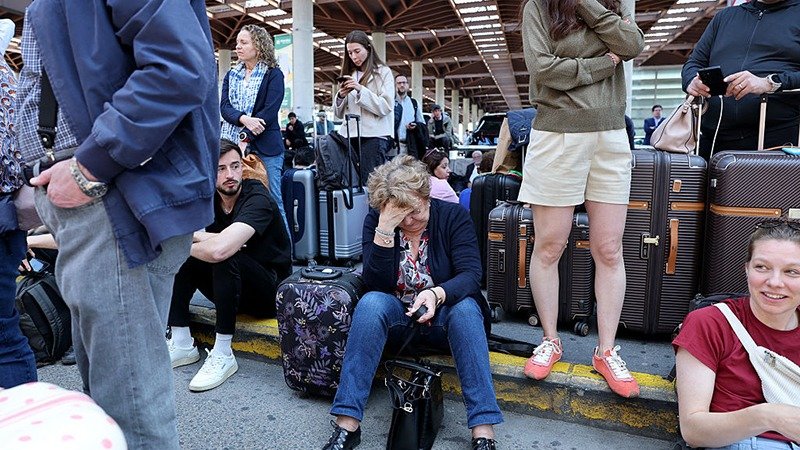
Navigating Chaos: The Aftermath of Spain and Portugal’s Power Outage
A significant power outage struck Spain and Portugal on April 28, leading to widespread disruptions in public transport and essential services. While electricity has largely been restored, the consequences of the blackout continue to pose challenges for travelers and daily commuters in both countries.
Current Status of Airports
Following the return of electricity, Spanish Prime Minister Pedro Sanchez declared a state of emergency, which remains active. By early morning, Red Eléctrica, the operator of Spain’s national grid, confirmed that power was restored to 99.16% of consumers. Meanwhile, in Portugal, officials announced a full recovery from the blackout.
Despite the restoration, airlines continue to face challenges. Numerous flights from major cities such as Madrid, Barcelona, and Seville have experienced cancellations or delays. In Portugal, while airports have resumed operations, Lisbon is still facing recovery issues, leading to significant flight disruptions.
The Extent of the Disruption
An analysis by Cirium reveals that the power outage resulted in the cancellation of 413 flights to and from Spain alongside 372 to and from Portugal. Lisbon, in particular, was heavily impacted, with 45% of its scheduled departures disrupted, along with significant inconveniences in Seville, Madrid, and Barcelona.
Passenger Rights and Compensation
Passengers affected by these disruptions may invoke rights under the Denied Boarding Regulations. However, as the disruption was caused by factors beyond the airlines’ control, direct compensation from carriers might not be readily available. Travelers are advised to check their insurance policies for coverage against delays or cancellations, which may offer necessary financial protection for unexpected expenses.
Furthermore, Air Canada indicated that rebookings can be made without penalties for flights from Barcelona, Madrid, Lisbon, and Brussels.
Impact on Rail Services
The ramifications also extended to rail networks, prompting Spanish emergency services to rescue around 35,000 passengers stranded on immobilized trains. Many commuters faced challenging situations, having to walk long distances or seek alternative transportation. Renfe, the Spanish rail operator, announced that urban train services in Madrid are now operating at half capacity, while high-speed and long-distance routes have resumed normal services.
In Portugal, train services were further hindered due to a pre-existing national strike, complicating the power outage’s effects. Nevertheless, the government confirmed that energy was restored to essential transport networks, and metro services in Lisbon and Porto are operational, albeit with slight delays.
Addressing Infrastructure Challenges
This power outage has exposed vulnerabilities within the infrastructure of both Spain and Portugal. Observers note that the incident highlights the urgent need to modernize aging systems and enhance the capacity of public services. Strengthening resilience in the face of such large-scale disruptions is crucial for both nations moving forward.


